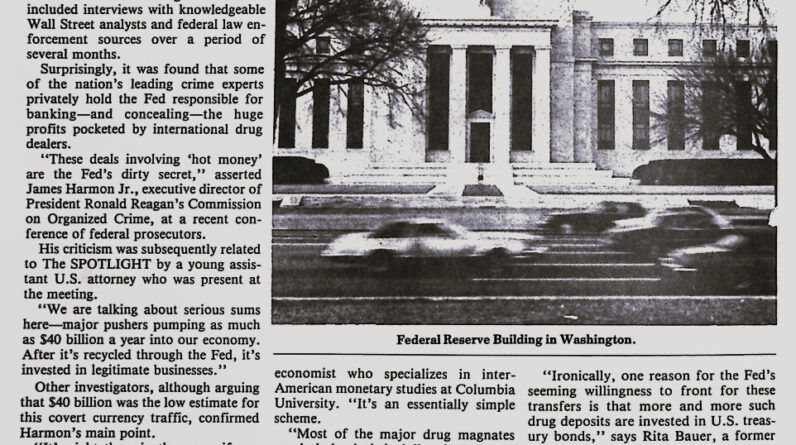The picture of the Rockefeller family shows them in full glory, all sons and a busy father in l937. In 1988 The Spotlight carried a book critique of the Age of Conflict by Ivor Benson of South Africa, a well-known author to many of our Spotlight readers. Clearly, in 1988 the author was right on point in predicting the present developments by quoting ” Much what happened in our century was made to happen and that money became the measure of all things.” We are still coping with the Rockefellers and Soros and it has become much more dangerous to survive bad politicians and greedy old employers of many persuasions.

“This Age of Conflict” by Ivor Benson, 58 pages, paperback, Dolphin Press, available from Liberty Library….
Exclusive To The Spotlight
By Richard Scales
“This Age of Conflict” by political commentator Ivor Benson is an ambitious book that explains, in a terse 58 pages, some of the hidden causes of 20th-century conflict.
Benson gives us a logical account of how “changes in money and intellect” have made this century “the bloodiest ever recorded in mankind.” In the process he explains how “modern super-capitalists” have exploited these changes to interfere with and distort world political and economic systems for their own aggrandizement. “Much of what has happened in our century has been made to happen,” Benson writes. ”
There is a conspiratorial theory of history involving a number of secret and semi-secret organizations like Rhodes Scholarship Trust, the Round Table Movement, the Royal Institute of International Affairs and the American Council on Foreign Relations.” Benson traces the seeds of 20th century conflict back to the latter half of the 19th century when money began emerging as “the great source of power. “Money took on a new role and meaning in human affairs,” Benson says. “Economics began to prevail over politics… money became the measure of all things.”
Eventually, of course, money acquired the power to “dictate world affairs” which in itself created conflict. In the 1930s, for instance, rivalries between large factions of financial power resulted in “fierce political struggles” in the west and ultimately caused World War II, according to Benson.
In the meantime, a “political idealism” known as socialism “began winning converts all over the world” particularly in the west, Benson says. The emergence of socialism as a political force coincided with the decline of Christianity in the west, and in fact its ideals replaced those of Christianity….









You must be logged in to post a comment.